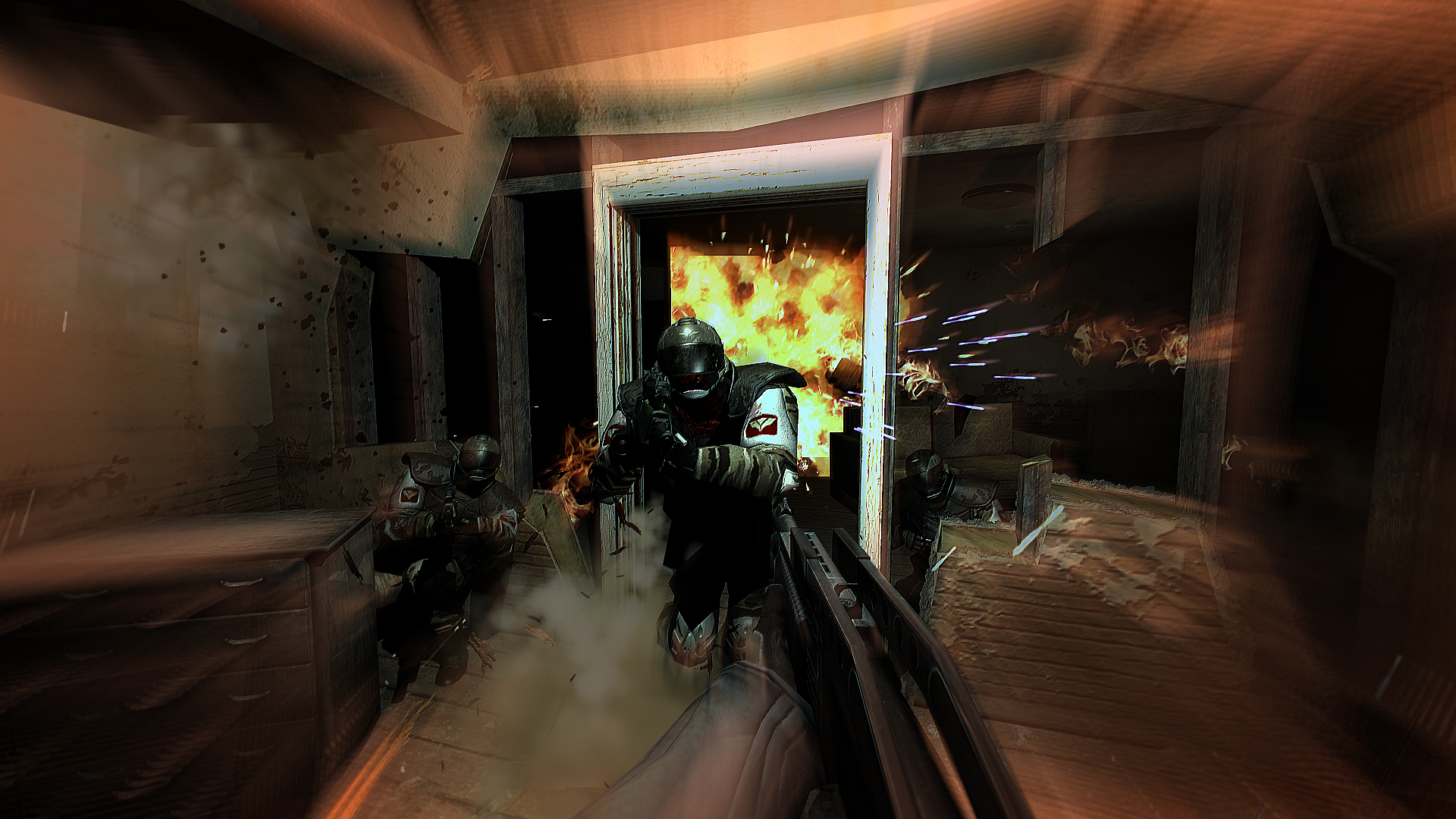Why aren't our enemies smarter? Gaming AI's problem of smoke and mirrors
You wouldn't like them when they're truly smart
The fallibility complex
Sean also sees player cues and AI fallibility as essential. "Difficulty is a difficult thing to get right. It's often the case that games have to add in audio cues when AI controlled enemies do things in order to help the player understand what is going on. Having a character yell 'I'm gonna flank him!' is generally a good way to make the player realize what is going on.
"You need to consider adding in the chance for the AI to make a mistake - even if it's something as simple as handicapping an enemies projectile accuracy. Making an AI look like it's made a genuine mistake without having the player think it's broken is very hard. I think making mistakes is a genuinely important part of a good AI enemy
"Subtlety is also key - having a character behave realistically as if they aren't just always waiting on the player to trigger an event. Things like running ahead of the player – Elizabeth in Bioshock Infinite – or exploring the environment autonomously – the Dog in Fable 2 – really give off an impression to the player that the game world isn't just all about them."

As for Alex working on Tangiers, he faced a similar problem to Eidos Montreal had with Thief and created what he calls a 'smug system'. His AI was just too good.
"Rather naively, we went very overboard in our first attempts at this, aiming for an incredibly smart, analytic approach. The AI would break down the environment, assessing and cross-referencing the characteristics of space, the relationships of space and any existing audio/visual clues as to the player's location, in order to determine the player's likely location.
"From the player's perspective, the AI would just hone in. Nine times out of ten, the AI would correctly determine the player's location - the stealth loop was degenerated down to pot luck. To fix this, we kept the idea of the system but abstracted it, and added inefficiencies.
"Take F.E.A.R. It was great to have the AI actually flanking you, moving to strike you from the side while you were pinned down. Except that the AI didn't actually do that. There was no flanking behaviour within the AI, just a blend of more predictable behavior and savvy level design. Give the player time and a gameplay loop to engage & interact with. Implementing a genre-appropriate version of that clumsy FPS flanking manoeuvre."
Sign up for breaking news, reviews, opinion, top tech deals, and more.
Looking to the future, Sean wants the NPC to take on a role that betters the player's experience as well as its own.
"More simulated agents and more complex decision trees for NPC characters. I'd like to see more complex interactions between AI agents themselves. What I'd really love to see is a game where the NPCs themselves have goals, 'emotions' and ambitions - they then procedurally generate quests for the player in order to further their own goals.
"For example a baker wants to kill someone they dislike - so they give the player a quest to deliver some poisoned bread to their target."
In a similar vein, Alex wants to see AI progress towards creating more intricate emergent experiences, the sort of encounters to make for campfire stories like his helpful band of Stalkers, and getting the AI to perform the same ridiculous exploits as DayZ's humans. "AI that isn't just capable of functioning in a systemic environment but that takes advantage of it and transforms the player's experience."